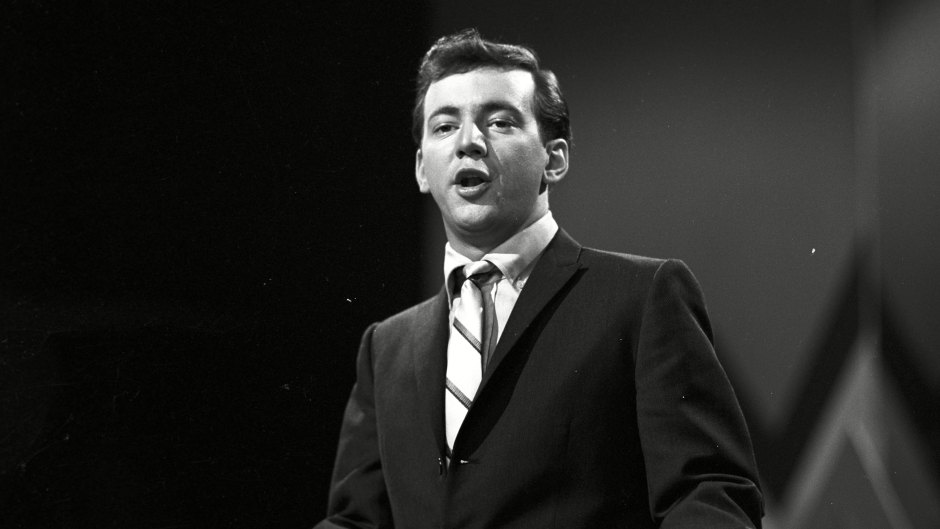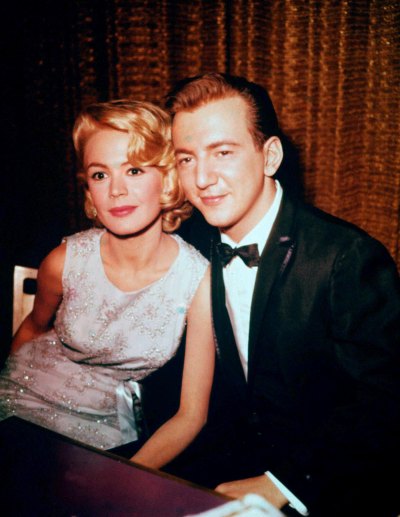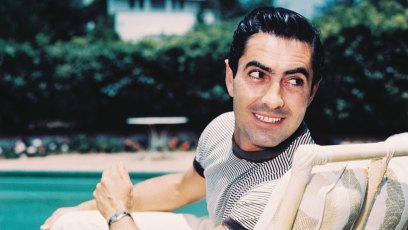
ITV/Shutterstock
Songwriter Bobby Darin Lived a Full Life Before His Death at Age 37: ‘Always Wanting to Make It’
At age 11, Dodd Darin hit four home runs in a single Little League game. “On the fourth one, I’m trotting around the bases in all my glory and I hear, ‘Run those bases, kid, hustle it! Move that you-know-what!’” he recalls. The voice belonged to Dodd’s father, singer Bobby Darin, cheering him on from the sidelines. “That was him, always driven and always wanting to make it,” says Dodd.
Few performers shined brighter than Bobby in the late 1950s and early 1960s. “He had incredible gifts. He was a songwriter, actor, singer, musician. He played seven instruments. He was a terrific dancer, comedian and impressionist,” says David Evanier, author of Roman Candle: The Life of Bobby Darin. “He did it all.” The performer’s accomplishments are even more impressive due to the poor health, poverty, emotional betrayal and tumultuous marriage that Bobby overcame on his climb to the top.

He always knew his life would be short, so Bobby never stopped moving. “At age 7, he got rheumatic fever, which damaged the heart valves,” explains Dodd, author of a biography of his famous parents, Dream Lovers: The Magnificent Shattered Lives of Bobby Darin and Sandra Dee. “He overheard a conversation with his mother and the doctor saying even with good care, [he would] not live past 16 years old.”
A bright child, Bobby was a pupil at the prestigious Bronx High School of Science. “He was the smartest man I ever met,” singer Connie Francis, his first love, tells Closer. “He could talk about anything; poetry, philosophy, politics, history — anything, you name it!”
The pair met when Bobby was 19 and working as a jingle writer. “We didn’t have two nickels to rub together,” recalls Connie, who adds that they used to share a single sandwich for lunch. Bobby was living in a tenement building with his mother, sister Nina and assorted relatives. “It was three rooms with so many people,” Connie says. “The bathtub was in the kitchen. But Bobby was determined to make it before he was 25.”
BEYOND THE SEA
His career took off with 1958’s hit “Splish Splash.” He followed it up with soon-to-be classics including “Dream Lover,” “Mack the Knife” and “Beyond the Sea.” “He was very ambitious,” says Evanier. “He became a superstar by the age of 22.”
Bobby made his film debut in 1961’s teen romance Come September, co-starring Rock Hudson, Gina Lollobrigida and 18-year-old Gidget star Sandra Dee. “For the first month or so of shooting, she couldn’t stand him,” says Dodd. But Bobby charmed Sandra’s mother, Mary, who insisted her daughter go on one date with him.
To everyone’s surprise, the co-stars fell in love and eloped on Dec. 1, 1960. Sandra, who had been working since childhood, put her career on hold to spend nights watching Bobby perform in Las Vegas. It didn’t take long for her to feel neglected. “We had no life together,” said Sandra, who began drinking heavily and gambling to relieve her loneliness. “Then, to complicate matters, I became pregnant.”
The pair’s son, Dodd, was born in 1961, but family wasn’t enough to hold them together. Sandra suffered from depression, which her growing alcoholism made worse. She picked fights with Bobby “to stir things up,” she said. Bobby, meanwhile, could be verbally abusive and flirted with female fans in front of his wife.
The couple split in 1963, reconciled and finally divorced in 1967. Bobby’s troubles went beyond his marriage. By 1968 he had grown close to Sen. Robert Kennedy and began thinking of running for office himself, prompting his “sister” Nina to make a shocking confession. The woman who raised Bobby as her
son was actually his grandmother and Nina was his birth mother. “It was one of the most devastating moments of his life. He never forgave Nina,” says Evanier. Nina also refused to reveal the identity of his father to Bobby, leaving him bewildered. “He must of felt his whole life was a lie [sic],” adds Connie Francis.
IF I WERE A CARPENTER
Bobby never stopped experimenting and challenging himself as a performer. He released his version of “If I Were a Carpenter,” a folk song, in 1966. It rose to No. 8 on the Billboard charts and earned him a Grammy nomination. (He lost to the Beatles’ “Eleanor Rigby.”) “He wanted to expand his range,” says Evanier. “For him, it meant going into protest music. He did that knowing that it was risky.”
Bobby also found a more stable home life in his relationship with Andrea Yeager, a legal secretary whom he met in 1970. “Andrea was a simpler person, more direct and less complicated,” says Evanier. “That was a very redeeming part of his last years.” Unfortunately, the strain of Bobby’s worsening health led to their divorce in 1973.
He succeeded most as a role model to his son, Dodd, who was 12 when Bobby died following heart surgery in 1973. Bobby was only 37, but he had lived a very full life on his own terms. “He was going out of his way to spend as much time with me as possible, to instill in me some values,” Dodd remembers. “Here was a kid from the Bronx who overcame a lot of things… and he always has his feet on the ground. It didn’t matter what level of fame he had, he always knew where he came from.”








































